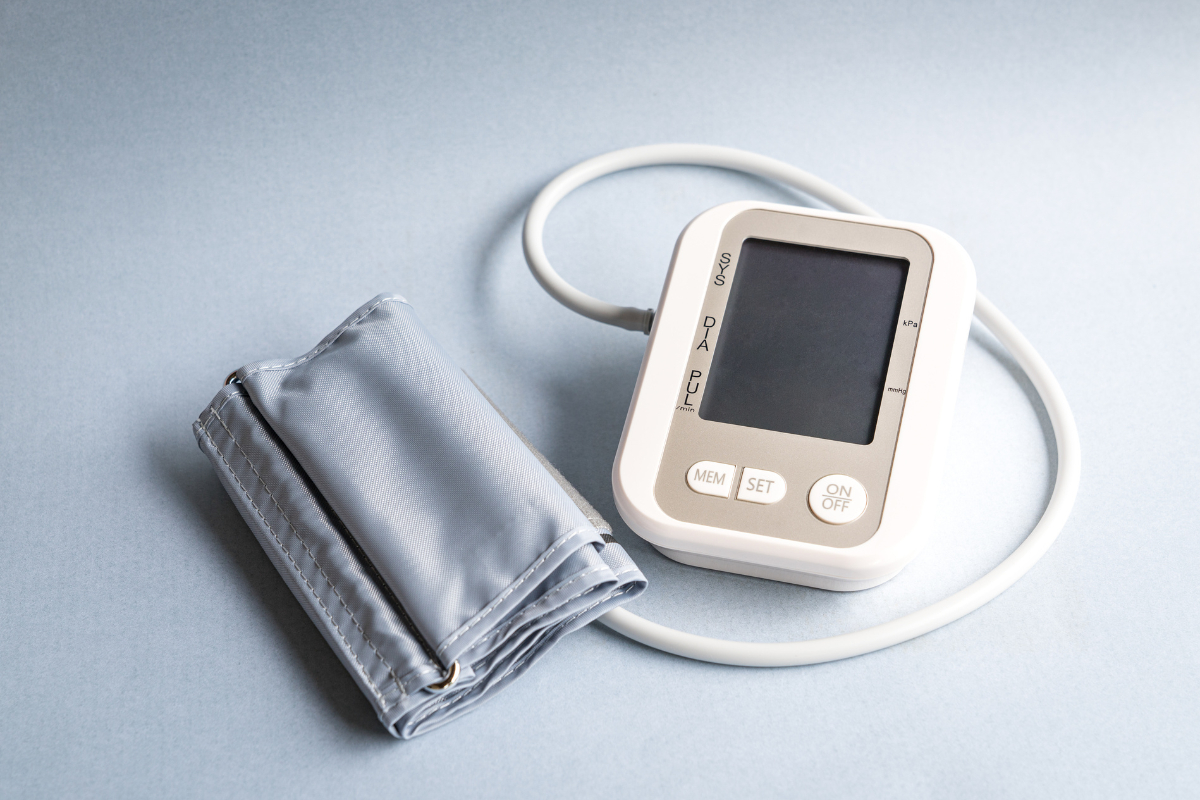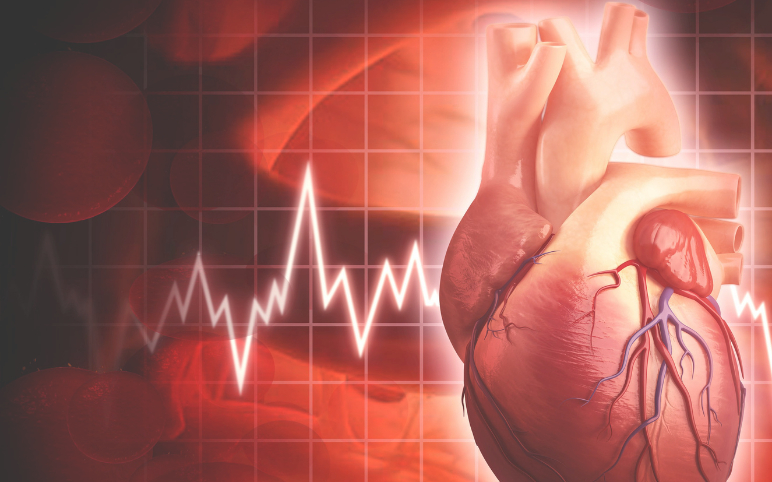Understanding the Growth and the Evolving Market Dynamics of Cardiac Rhythm Management Devices
Dec 13, 2023
Table of Contents
Globally, cardiovascular diseases (CVDs) stand as the primary cause of mortality, claiming an estimated 17.9 million lives in 2019 alone, which accounted for 32% of all global deaths. Among these fatalities, a staggering 85% were attributed to heart attacks and strokes. Within the spectrum of noncommunicable diseases, CVDs contributed significantly to premature deaths under the age of 70, amounting to 38% of the 17 million lives lost in 2019. These statistics underscore the urgent need for enhanced strategies, resources, and global initiatives to address the prevalence and impact of cardiovascular diseases on a global scale. Amid the rising CVD challenges, Cardiac Rhythm Management Devices stand at the forefront of modern cardiology, representing a diverse array of innovative technologies designed to regulate and manage heart rhythms and reduce the growing burden. These devices, including pacemakers, implantable cardioverter-defibrillators (ICDs), and cardiac resynchronization therapy (CRT) devices, have evolved significantly in recent years, due to technological advancements.
As per the latest assessment by DelveInsight, the global Cardiac Rhythm Management Devices market is estimated to grow at a CAGR of 5.64% during the forecast period from 2023 to 2028. Fueling the growth of the Cardiac Rhythm Management Devices market are several key factors, notably the escalating prevalence of heart rhythm disorders, driven by factors such as an aging population and an increasing incidence of lifestyle-related conditions. Moreover, technological innovations, particularly in remote monitoring solutions and data-driven personalized medicine, have reshaped the landscape by offering advanced interventions and more efficient care paradigms.
Downloads
Click Here To Get the Article in PDF
Recent Articles
- Stryker’s Tornier Shoulder Arthroplasty; Genesis Acquires JC Medical; FDA Clearance to Single-Use...
- Stryker’s LIFEPAK 35 Monitor/Defibrillator; Qiagen’s QIAstat-Dx Respiratory Panel; Evolution Opti...
- Biosense Webster’s HELIOSTAR Radiofrequency Balloon Ablation Catheter; Philips’s ClarifEye Augmen...
- FDA Clears Medtronic’s New Inpen™ App; Zimmer Biomet Gets FDA Approval for Oxford® Cementless Par...
- CE Mark to Ibex’s Gastric Cancer Detection System; Senseonics’s Eversense E3 Continuous Glucose M...
The impact of technology on these devices has been transformative, fostering precision, real-time monitoring, and tailored treatment strategies for individuals grappling with cardiovascular diseases. This integration of cutting-edge technology has played a pivotal role in mitigating the impact of cardiovascular diseases by providing timely interventions, mitigating risks associated with irregular heart rhythms, and significantly improving overall patient outcomes. Within this dynamic market, MedTech and HealthTech companies stand as pivotal players, leveraging their expertise and resources to drive innovation. Through extensive research, development of state-of-the-art devices, and strategic collaborations, these industry leaders continually push the boundaries of cardiac care technology, delivering groundbreaking solutions that address evolving patient needs and propel the field towards new frontiers of cardiac health management. Their commitment to advancing technology and patient-centered care continues to redefine the standards and possibilities within the Cardiac Rhythm Management Devices market, reshaping the future of cardiovascular healthcare.
Benefits of Cardiac Rhythm Management Devices
Cardiac rhythm management devices stand as pillars in modern cardiology, offering a multitude of benefits that transcend mere regulation of heart rhythms. These devices have significantly transformed patient care, providing a spectrum of advantages that extend far beyond basic treatment. Some of the major benefits of the Cardiac Rhythm Management Devices include:
- Preserving Life, Ensuring Stability
At the core of their impact lies their ability to restore and maintain healthy heart rhythms. For individuals with arrhythmias or irregular heartbeats, these devices act as silent guardians, ensuring the heart beats in a regular, coordinated rhythm. This function alone can prevent life-threatening situations, reducing the risk of sudden cardiac arrest and enabling individuals to lead fuller lives.
- Enhancing Quality of Life
Beyond the preservation of life, these devices greatly enhance the quality of life for patients. By stabilizing heart rhythms, they alleviate symptoms such as fatigue, dizziness, and shortness of breath, allowing individuals to engage in daily activities without the hindrance of debilitating symptoms. Patients often report a significant improvement in their overall well-being and ability to partake in physical and social activities after device implantation.
- Personalized Care and Continuous Monitoring
Advancements in technology have endowed these devices with the ability to provide personalized care. They can be programmed to suit a patient’s specific cardiac needs, adapting to changing circumstances and ensuring optimal functioning. Moreover, many modern devices are equipped with remote monitoring capabilities, enabling healthcare providers to continuously track a patient’s cardiac health, promptly detect irregularities, and intervene if necessary, even from a distance.
- Reducing Hospitalizations and Healthcare Costs
The utilization of cardiac rhythm management devices has exhibited a notable reduction in hospital admissions and healthcare costs. By effectively managing heart rhythms and preventing emergencies, these devices minimize the need for frequent hospital visits or prolonged stays. This not only reduces the burden on healthcare systems but also translates into substantial cost savings for patients and healthcare providers alike.
- Empowering Patients and Families
Moreover, these devices instill a sense of security and confidence in both patients and their families. Knowing that a device is actively monitoring and managing their heart rhythms provides reassurance, allowing individuals to resume their daily lives with greater peace of mind. Families also experience a sense of relief, knowing that their loved ones have a safety net against potential cardiac emergencies.
As technology continues to advance, the benefits of cardiac rhythm management devices are poised to expand further and are expected to revolutionize patient care, offering more personalized, efficient, and accessible solutions for managing heart rhythm disorders.
Applications of Cardiac Rhythm Management Devices
Cardiac rhythm management devices have emerged as indispensable tools in the realm of cardiology, offering a diverse array of applications that extend beyond the regulation of heart rhythms. These devices, encompassing pacemakers, implantable cardioverter-defibrillators (ICDs), and cardiac resynchronization therapy (CRT) devices, have proven their efficacy across various cardiac conditions, showcasing their versatility and adaptability in modern healthcare.
- Arrhythmia Management: Restoring Rhythmic Harmony
At their core, these devices excel in managing arrhythmias and irregularities in heart rhythms that can range from mild to life-threatening. Pacemakers, for instance, aid in regulating slow heart rhythms (bradycardia) by emitting electrical impulses to prompt the heart to beat at a normal rate. ICDs, on the other hand, are designed to detect and correct dangerously fast heart rhythms (tachycardia) by delivering precisely timed electrical shocks.
- Heart Failure Intervention: Optimizing Cardiac Function
In cases of heart failure where the heart’s pumping ability is compromised, CRT devices come into play. By synchronizing the contractions of the heart’s chambers, these devices optimize cardiac function, improving the heart’s efficiency and alleviating symptoms associated with heart failure. This application has shown promising results in enhancing the quality of life for individuals with heart failure.
- Remote Monitoring and Data Insights: Enhancing Patient Care
The integration of remote monitoring capabilities within these devices has revolutionized patient care. Healthcare providers can remotely access real-time data on a patient’s cardiac status, allowing for proactive interventions and adjustments in treatment plans when irregularities are detected. This not only ensures timely medical attention but also empowers patients by offering continuous care outside clinical settings.
- Risk Reduction and Prevention: Preventing Sudden Cardiac Events
One of the pivotal applications of these devices is their role in preventing sudden cardiac events. By swiftly detecting and correcting irregular heart rhythms, ICDs, in particular, serve as a safeguard against potentially fatal arrhythmias, significantly reducing the risk of sudden cardiac arrest and providing a safety net for individuals at high risk.
- Advancements in Personalized Medicine: Tailored Solutions
With advancements in technology, these devices are moving towards more personalized approaches. Customizable programming, adaptive algorithms, and the integration of artificial intelligence aim to provide tailored solutions that cater to an individual’s unique cardiac needs, ensuring optimal outcomes and minimizing unnecessary interventions.
Cardiac Rhythm Management Devices Market Dynamics
The rising need for cardiac rhythm management devices is significantly driven by the expanding demographic of patients grappling with diverse heart rhythm disorders, including conditions like arrhythmia and atrial fibrillation, among others. As reported by the American Heart Association (2022), the global population living with coronary (ischemic) heart disease in 2020 was estimated at around 244.1 million. In that same year, regions such as North Africa, the Middle East, Central and South Asia, and Eastern Europe exhibited the highest prevalence rates of coronary (ischemic) heart disease. Likewise, according to the 2022 report from the British Heart Foundation, approximately 550 million individuals, equating to 1 in 14 people globally, were affected by heart and circulatory diseases in 2019. This encompassed roughly 290 million women and approximately 260 million men.
This escalating demand for Cardiac Rhythm Management Devices is further propelled by factors such as the aging population. As per the WHO in 2022, the global population aged 60 and above surpassed one billion individuals in 2020. Projections indicate that this elderly demographic is poised to double in size, reaching an estimated 2.1 billion by 2050. Furthermore, the cohort aged 80 and above is anticipated to triple between 2020 and 2050, escalating to approximately 426 million individuals. This demographic shift underscores the significant rise in the aging population, necessitating heightened attention to healthcare systems and tailored medical interventions to meet the evolving needs for CVD related solutions for this expanding demographic.
The growing prevalence of risk factors like obesity, hypertension, diabetes, smoking, old age, alcohol consumption, unhealthy lifestyle, atherosclerosis, are other key factors for the rising CVD disease burden. Moreover, the increased awareness regarding the importance of proactive heart health monitoring is further stimulating the demand. Furthermore, advancements in diagnostic capabilities have led to improved detection rates of these cardiac conditions, necessitating a parallel surge in the adoption of innovative rhythm management devices. The evolving landscape of cardiovascular health emphasizes the critical role these devices play in managing and improving the quality of life for individuals affected by various heart rhythm disorders.
Yet, the expansion of the overall cardiac rhythm management devices market might encounter impediments due to complications linked with diverse cardiac rhythm disorders. Additionally, the stringent regulatory approval procedures within this sector pose another potential limitation on market growth. These regulatory hurdles often necessitate rigorous testing and evaluations for safety and efficacy, which can significantly elongate the time required to bring new devices to the market. Moreover, the intricate nature of cardiac rhythm disorders and the diverse array of conditions demands a high level of precision and reliability in the development and approval of these devices. As a result, while the market presents immense potential, the challenges posed by complexities in disorders and regulatory frameworks necessitate continual innovation and strategic approaches to sustain growth and advancements in this sector.
Key Companies in the Global Cardiac Rhythm Management Devices Market
Companies play a pivotal role in shaping and advancing the Cardiac Rhythm Management Devices Market through innovation, research, and strategic initiatives. These companies, ranging from established MedTech and HealthTech giants to innovative startups, drive the market’s growth by continually introducing cutting-edge technologies and solutions. Currently, some of the key companies such as Abbott, Bexen Cardio, Biotronik, Boston Scientific Corporation, BPL Medical Technologies, CU Medical Systems, Kestra Medical Technologies, Koninklijke Philips N.V, Lepu Medical Technology, LivaNova PLC, Medtronic, Microport Scientific Corporation, Nihon Kohden Corporation, OSCOR Inc., Progetti S.r.l., SCHILLER AG, Shree Pacetronix Ltd., Stryker, Vitatron, Zoll Medical Corporation, and others actively working in the global Cardiac Rhythm Management Devices Market.

The relentless focus of the MedTech companies on research and development fuels the evolution of devices, leading to more advanced, efficient, and patient-centric products. Companies are investing heavily in exploring novel technologies such as artificial intelligence, miniaturization, remote monitoring capabilities, and wireless connectivity, aiming to enhance device efficacy and patient outcomes. Moreover, they engage in strategic partnerships and collaborations with healthcare providers, research institutions, and regulatory bodies to ensure compliance, streamline adoption, and expand market reach. The competition within this sector fosters a culture of innovation, prompting companies to continuously improve devices, optimize manufacturing processes, and explore new markets globally.
Additionally, these companies play a critical role in shaping healthcare policies, advocating for regulatory frameworks that support innovation while ensuring patient safety. Ultimately, their concerted efforts drive the Cardiac Rhythm Management Devices Market forward, elevating standards of care, and offering groundbreaking solutions that significantly impact the lives of patients with cardiovascular conditions.
Recent Clinical, Commercial, and Regulatory Advances in the Cardiac Rhythm Management Devices Market
The landscape of cardiac rhythm management devices has witnessed a transformative journey over the years, revolutionizing the treatment and management of various heart rhythm disorders. Several major developments have been registered in the Cardiac Rhythm Management Devices Market, some of which includes:
- On October 24, 2023, Medtronic received FDA approval for its Aurora extravascular implantable cardioverter-defibrillator (EV-ICD) MRI SureScan system.
- On October 2, 2023, Boston Scientific announced the launch of its next-generation LUX-Dx II+ insertable cardiac monitor (ICM) system.
- On August 24, 2023, GE HealthCare launched CardioVisio for Atrial Fibrillation (AFib), a digital tool designed to assist clinicians in visualizing longitudinal data relevant to disease progression from multiple data sources and driving evidence-based clinical decision support directed by up-to-date AFib guidelines.
- On July 5, 2023, Abbott announced that the US FDA had approved the company’s AVEIR™ dual chamber (DR) leadless pacemaker system, which is the world’s first dual chamber leadless pacing system that treats people with abnormal or slow heart rhythms.
- On March 7, 2023, Restore Medical Ltd announced the successful completion of the first in a human clinical study with its CONTRABAND™ device, which is the world’s first and only Pulmonary Artery Banding (PAB) transcatheter implant device intended to treat and improve the quality of life for heart failure patients.
- On February 17, 2023, Medtronic plc received the CE mark for the Aurora EV-ICD™ MRI SureScan™ (Extravascular Implantable Cardioverter-Defibrillator) and Epsila EV™ MRI SureScan™ defibrillation lead, to treat fast heart rhythms that can lead to sudden cardiac arrest. The Aurora EV-ICD system is indicated for patients who are at risk of life-threatening arrhythmias, who have not had a prior sternotomy, and who do not need chronic bradycardia (abnormally slow heartbeat) pacing.
- On August 30, 2022, Medtronic plc announced the completion of its acquisition of Affera, Inc., a medical technology company dedicated to delivering unrivaled innovative solutions to address the rapidly growing cardiac arrhythmia market.
- On August 28, 2022, Medtronic plc announced that in a global clinical trial, its investigational EV ICDTM System – a first-of-its-kind defibrillator with the lead placed under the breastbone, outside of the heart and veins – achieved a defibrillation success rate of 98.7% and met its safety endpoints.
- On April 28, 2022, Vektor Medical, San Diego-based company, declared positive results from its clinical validation study evaluating the accuracy of cardiac mapping with vMap. vMap is an FDA-cleared, computational mapping system used for identifying arrhythmia sources anywhere in the heart using only 12-lead electrocardiogram (ECG) data.
Cardiac Rhythm Management Devices Market Future Outlook
The future outlook for the Cardiac Rhythm Management Devices Market appears promising, marked by a convergence of technological advancements, evolving patient needs, and a growing emphasis on personalized healthcare solutions. As technology continues to advance at a rapid pace, these devices are poised to undergo significant transformations. Miniaturization, integration of advanced sensors, and the utilization of artificial intelligence are expected to revolutionize the landscape, offering more streamlined and sophisticated devices that provide precise and tailored cardiac care. Moreover, the market’s trajectory is significantly influenced by the increasing prevalence of heart rhythm disorders, propelled by factors such as an aging population, rising incidences of risk factors like diabetes and obesity, and an expanding pool of patients requiring long-term cardiac monitoring and intervention. The demand for innovative solutions that not only regulate heart rhythms but also offer enhanced connectivity, remote monitoring capabilities, and interoperability with other healthcare systems is anticipated to drive substantial growth.
Furthermore, the shift towards patient-centric care models and the emphasis on preventive healthcare measures are likely to shape future market trends. This incline towards personalized medicine is expected to fuel research and development efforts, fostering the creation of devices that can adapt dynamically to individual patient needs, optimize treatment outcomes, and improve overall patient satisfaction.
In essence, the Cardiac Rhythm Management Devices Market is on a trajectory toward a future marked by technologically sophisticated, patient-centered solutions. As the industry continues to innovate and respond to evolving healthcare demands, these devices are poised to play an even more integral role in managing heart rhythm disorders, enhancing patient outcomes, and reshaping the landscape of cardiac care.

Downloads
Article in PDF
Recent Articles
- CE Mark to Ibex’s Gastric Cancer Detection System; Senseonics’s Eversense E3 Continuous Glucose M...
- Boston Scientific INGEVITY™ gets Expanded Indication and acquires Silk Road Medical; FDA Approves...
- Smith+Nephew’s Hip Arthroplasty System; Mammotome Launched the HydroMARK Plus Breast Biopsy Site ...
- Apyx Medical Received FDA 510(k) Clearance for the Use of Renuvion; Medtronic’s Next-generation M...
- Tepezza receives approval; a new way to treat Alzheimer’s




